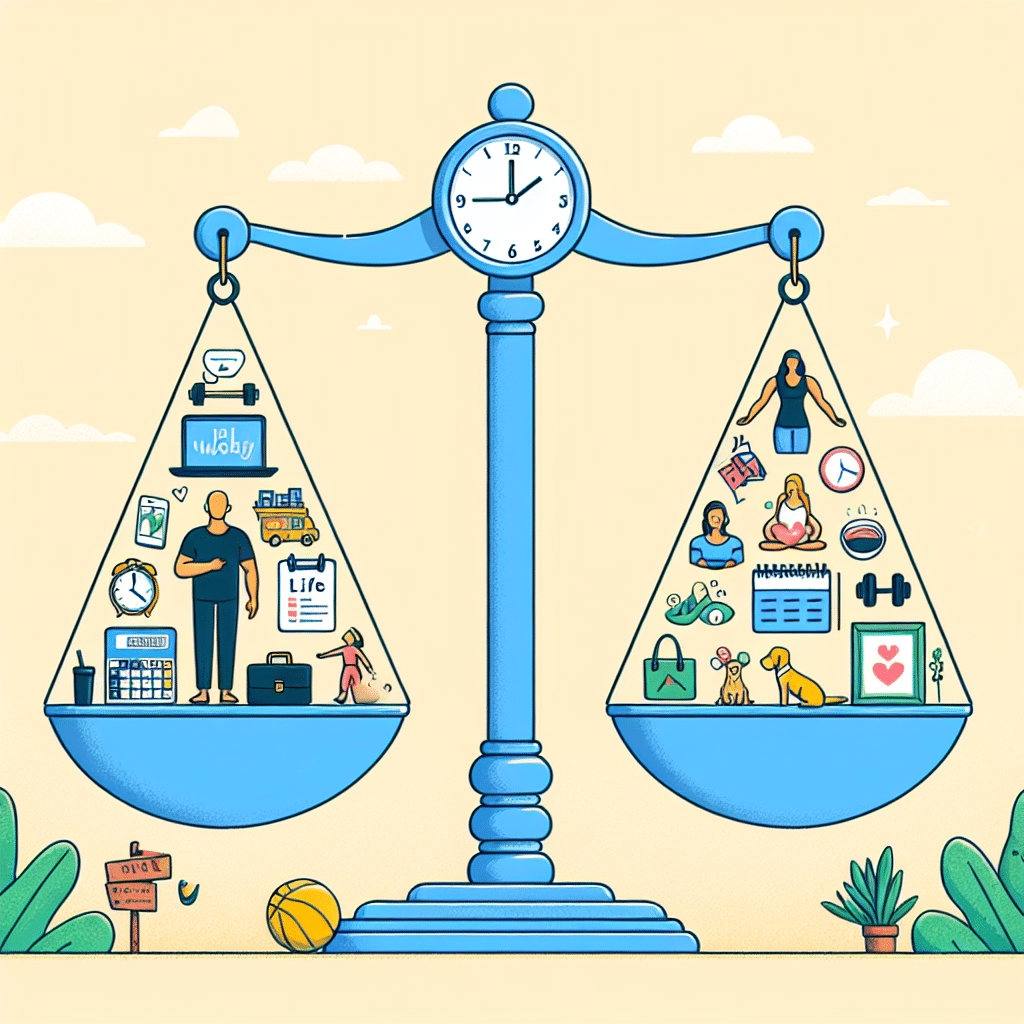Understanding Work-Life Balance
Balancing work and personal life is an essential skill in today’s fast-paced world. Achieving this balance can lead to increased productivity, satisfaction, and overall well-being. Here are several effective tips to help you maintain a harmonious work-life balance.
1. Set Clear Boundaries
Establish distinct boundaries between your work and personal life. Designate specific work hours and communicate them with your colleagues. This practice prevents work from encroaching on personal time, allowing you to enjoy leisure activities without distractions.
2. Develop a Routine
Creating a daily routine can help structure your day effectively. Allocate time for work tasks and personal activities. Routines create predictability, reducing anxiety and helping you remain focused and productive during work hours.
3. Prioritize Tasks
Utilize prioritization techniques such as the Eisenhower Matrix or the ABCD method. Assess tasks based on urgency and importance. This practice ensures that you focus on high-priority items, freeing up time for personal pursuits after work.
4. Embrace Time Management Tools
Leverage technology to streamline your workflow. Tools like Trello, Asana, or Todoist can help you manage tasks effectively. These platforms allow you to track deadlines and maintain accountability, ensuring that you have time for personal activities.
5. Learn to Say No
Understand your limitations and avoid overcommitting. Politely decline additional responsibilities that may overwhelm you. Saying no is crucial for managing stress and preserving time for personal interests and family.
6. Schedule Regular Breaks
Take short breaks throughout your workday to recharge your mental energy. Studies suggest that brief intervals can enhance focus and productivity. Use these breaks to stretch, walk, or practice mindfulness, creating a healthier work environment.
7. Utilize Flexibility
If possible, leverage flexible work arrangements such as remote work or adjustable hours. Flexibility allows you to design your work schedule around your life, making it easier to fulfill both professional and personal obligations.
8. Foster a Support System
Build a network of friends and family who understand the importance of work-life balance. Share your goals and challenges with them. Having a support system can provide motivation, encouragement, and helpful insights when balancing priorities.
9. Engage in Healthy Activities
Incorporate physical activity into your daily routine. Regular exercise is vital for reducing stress and increasing energy levels. Activities like yoga, cycling, or jogging can significantly enhance your mood and overall well-being.
10. Set Personal Goals
Establish personal goals outside of work. Whether it’s learning a new skill, pursuing a hobby, or spending time with family, having clear objectives helps you focus on what’s important in your personal life.
11. Disconnect from Technology
Designate tech-free zones or times, such as during dinner or a family outing. This practice encourages deeper connections with loved ones and reduces distractions from work-related notifications.
12. Practice Mindfulness
Incorporate mindfulness techniques to improve your focus and reduce anxiety. Mindfulness practices, such as meditation or deep breathing, can help you stay present in both work and personal life, enhancing satisfaction in both areas.
13. Evaluate Your Career Path
Assess whether your current job aligns with your personal values and goals. If work demands continually disrupt your personal life, consider discussing an adjustment with your supervisor or seeking another role that better suits your lifestyle.
14. Attend Workshops or Webinars
Participate in workshops focused on time management and work-life balance. Continuous learning provides valuable skills and techniques to manage your workload while prioritizing personal life.
15. Seek Professional Help
If you find it challenging to manage stress or maintain balance, consider talking to a mental health professional. Therapy can help you develop effective coping strategies, ensuring better equilibrium in your life.
16. Plan Your Week
Take some time each Sunday to plan your upcoming week. Set your priorities and schedule personal activities along with work tasks. This preparation prevents burnout and keeps you excited about your week ahead.
17. Opt for Quality Over Quantity
Focus on the quality of your interactions rather than the quantity. Spend meaningful time with family and friends, engaging in conversations and activities that truly matter to you. This approach deepens relationships and enhances your personal life.
18. Limit Multitasking
Multitasking may seem productive, but it often reduces efficiency. Concentrate on one task at a time, whether at work or during personal activities. This strategy enhances focus and leads to higher-quality outputs in both spheres.
19. Maintain a Clean Workspace
A tidy environment can significantly impact your productivity levels. Keep your workspace organized, allowing you to concentrate better during work hours and minimizing stress that stems from chaos.
20. Practice Gratitude
Regularly take time to reflect on the positive aspects of both work and personal life. Keeping a gratitude journal can improve your outlook, making it easier to manage stress and appreciate what you have.
21. Allocate Time for Yourself
Dedicate time solely for personal care and relaxation. Engage in hobbies, read, or practice self-care routines. These moments are crucial for your mental and emotional health, allowing you to recharge and approach work more refreshed.
22. Be More Efficient
Review your work processes and identify areas for improvement. Streamline tasks by eliminating unnecessary steps and seeking technological solutions that enhance efficiency. This can create additional time for personal interests.
23. Make Use of Commute Time
Apply productive tools during your commute, such as podcasts or audiobooks related to your interests. Transforming commute time into learning experiences can enhance your personal development while balancing work demands.
24. Celebrate Small Wins
Recognize and celebrate your achievements, both personal and professional. Acknowledging accomplishments can boost motivation and reinforce your commitment to maintaining a balance between work and personal life.
25. Regularly Reassess
Periodically evaluate your work-life balance practices. Identify areas where adjustments are necessary and be open to experimenting with new methods to enhance your experience. Realizing that balance is a continuous journey can lead to ongoing improvements.
